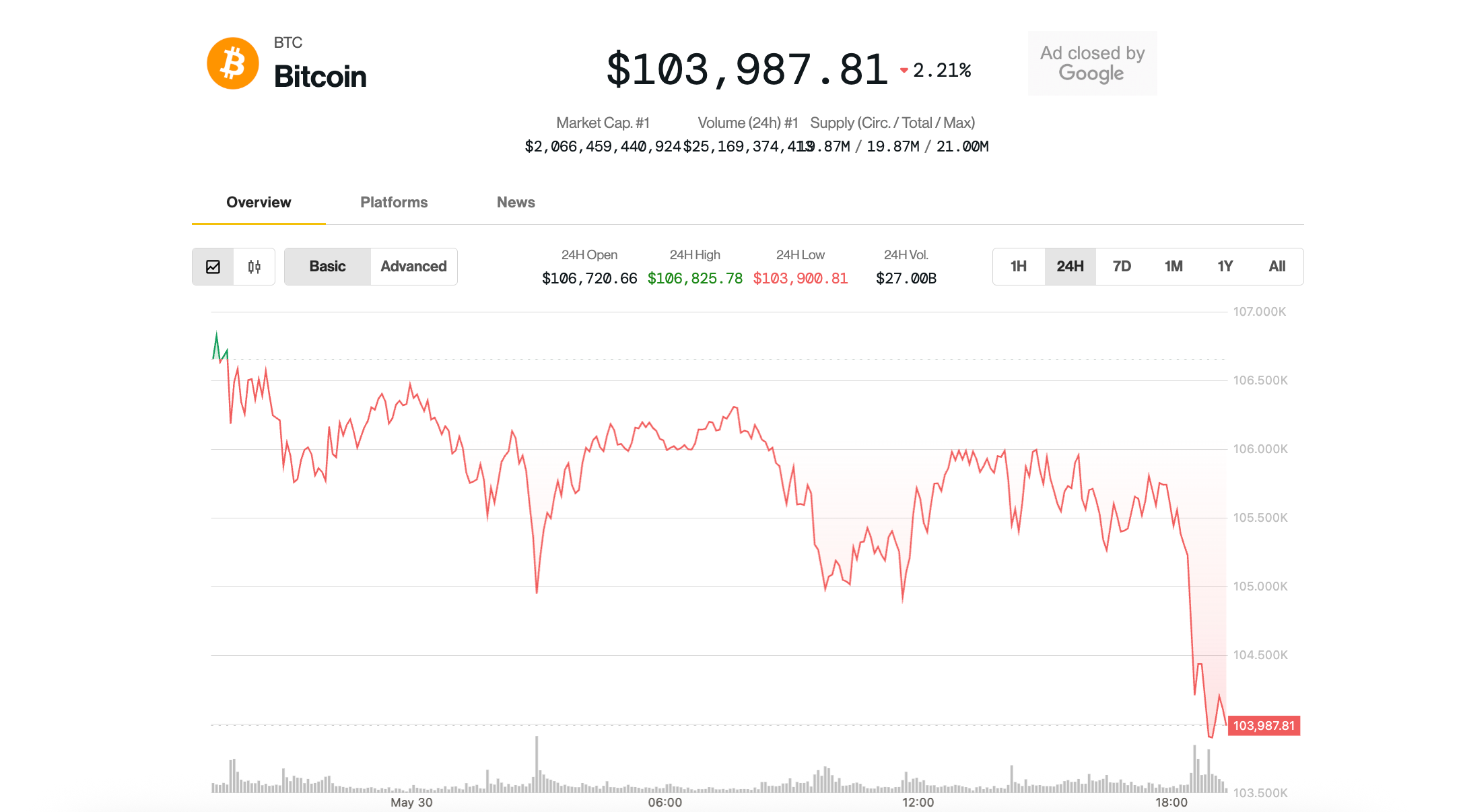
In Brief
Manta Network’s co-founder Victor Ji shed light on Manta’s plans to revolutionize the Zero-Knowledge domain and optimizing Web3 ecosystem.

The Web3 ecosystem is undergoing a transformative shift with the adoption of Zero Knowledge (ZK) technology. This innovative approach, heralded as a game-changer in the tech sphere, signifies a strategic move towards a more secure, private, and user-centric cryptography experience.
In an interview with Metaverse Post — Manta Network‘s co-founder Victor Ji shed light on Manta’s plans to revolutionize the Zero-Knowledge (ZK) space and optimize Web3 ecosystem. Victor shared intricate details on how Manta Pacific’s modular design, scalability solutions and contributions to Zero-Knowledge Proof (ZKP) technology aim to bolster the emerging domain.
Manta Network’s strategic approach and collaborations position it as a key player in the rapidly evolving Zero-Knowledge space. The platform’s Ethereum Layer2 network Manta Pacific is currently making waves in the Web3 space.
The layer2 network’s modular design, anchored in Caldera‘s custom OP Stack — utilizes Celestia as the data availability layer.
By migrating the data availability layer from Ethereum to Celestia, Manta Pacific significantly reduces gas fees. Likewise, Celestia with its pluggable data availability layer, ensures security through erasure coding and data availability sampling.
Victor emphasized that this approach enables sub-linear costs, surpassing the limitations of traditional linear cost models.
“For users and developers, the most intuitive feeling is that after using Celestia, the Gas fees for Manta Pacific will be significantly reduced. The current cost model for Rollups are linear, with costs rising or falling according to Ethereum interaction demand,” Manta Network’s Victor Ji told Metaverse Post. “In contrast, Celestia’s costs are sub-linear, and the costs will ultimately converge to a value far lower than Ethereum’s current costs.”
Furthermore, he said that Manta Pacific differentiates itself by implementing zkEVM using Polygon CDK, allowing for compatibility with various Layer1 and Layer2 solutions. Victor Ji underscored the unique proposition of Manta Pacific as a fully interoperable Layer2 execution layer.
“Users of Manta Pacific act as provers, generating ZK proofs locally when submitting transactions, with on-chain collators acting as verifiers. Afterward, the verified transactions are packed and compressed by the OP Stack sequencer and submitted to the Ethereum mainnet,” Victor explained. “Inside Layer2, Manta Pacific has already completed the generation and verification of ZK, so it can fully implement ZK’s zero-knowledge, that is, privacy.”
Evolution of zkVMs and Manta’s Contribution
Victor told Metaverse Post that Manta Network commitment to Zero-Knowledge Proof (ZKP) research is in tandem with the current evolution of zkVMs. He stated that Manta Network’s cryptographers are committed to Zero-Knowledge Proof (ZKP) research. Their focus is twofold: improving the user experience of Manta Network and advancing innovation in ZKP technology.
Initiatives encompass the ZKP language interoperability middleware layer OpenZL, as well as ZKP aggregate proofs, zkWASM, ZKP complexity abstraction, and more.
OpenZL is a pioneering initiative by Manta that aims to facilitates ZKP development with standardized, modular tools. At its core, it comprises of Eclair — a circuit description language that enhances interoperability for ZKP developers.
“OpenZL serves as a middleware for ZKP developers. It provides development tools and standards for zkApps, addressing the fragmentation and lack of interoperability in ZKP development. Eclair allows developers to write ZKP circuits in a proof system agnostic way while still retaining the optimal performance characteristics of different proof systems,” said Victor.
Victor emphasized that Eclair provides with several benefits, such as unified deployment experiences, potential mutual recursion between proof systems and a single code audit.
Likewise, Manta Pacific’s universal ZK circuit 2.0 is a developer-oriented ZK library that aims to enable seamless integration of ZK-enabled contracts for Solidity smart contracts and dApps.
Victor asserts that before the advent of universal circuits, building zkShuffle and similar ZK applications required manual circuit construction and conversion between programming languages such as Rust and Solidity.
“With the introduction of Manta’s universal circuits, the complexity has been significantly reduced,” he told Metaverse Post.
The platform plans to continue to roll out more universal circuits to provide additional ZK functionalities for Solidity applications.
“With the universal circuits on Manta Pacific, developers can easily deploy native EVM ZK applications, or use high-level APIs to call ZK-enabled contracts for their existing Solidity smart contracts and dApps,” Victor added.
Manta’s Innovative Approach for Sequencer Challenges
Victor discussed the current challenges of sequencers in blockchain systems and Manta Pacific’s innovative solutions. He explained that L2 network has adopted a modular architecture to mitigate sequencer hindrances, utilizing Optimism‘s sequencing services through the OP Stack architecture.
“Manta Pacific has adopted a modular architecture, and therefore we do not construct a Sequencer ourselves. Instead, we currently utilize Optimism’s Sequencing services through the OP Stack architecture and will use Polygon’s Sequencing services in the future to achieve a multi-sequencer system, where each Sequencer processes different customized requirements in shards,” said Victor.
Manta Pacific’s reliance on ZK technology plays a crucial role in achieving security and finality, with ZK proofs enabling rapid confirmation.
“Through ZK proofs, finality can be achieved in minutes or even seconds, rather than days. With robust ZK proof implementation, our CDK leverages the security of mathematical proofs, rather than relying on economic assumptions of fraud proofs,” added Victor.
ZK Machine Learning Prospects and Manta’s Future Plans
While discussing potential applications of Zero-Knowledge Machine Learning (ZKML), Victor acknowledged the exploratory stage of ZKML-related projects.
“In the ZKML (Zero-Knowledge Machine Learning) framework, ZK is primarily used to address issues of decentralization and to verify the inputs, outputs, and correct operation of ML models. However, ZKML is still in the exploratory stage and not very mature,” Victor told Metaverse Post. “Manta does not consider the development of ZKML-related projects in the short term.”
Victor said he envisions a future where Manta’s compatibility and adoption by various projects are ensured through strategic partnerships.
The platform’s current collaborations with OP Stack, Polygon CDK and LayerZero emphasize Manta Pacific’s compatibility with existing Ethereum dApps and its substantial role in the broader Layer2 ecosystem.
“Manta Pacific plans to connect to other chains built with Polygon CDK through a trustless ZK bridge, fully utilizing the interoperable block space and liquidity. This will enable atomic-level L2 to L2 cross-chain transactions, expanding the cross-chain shared liquidity space for dApps on Manta Pacific,” Victor explained to Metaverse Post. “By joining the shared, trustless ZK bridge to Ethereum, Manta Pacific will become part of an ever-growing, robust L2 ecosystem while maintaining chain independence and achieving flexible customizability.”
Disclaimer
In line with the Trust Project guidelines, please note that the information provided on this page is not intended to be and should not be interpreted as legal, tax, investment, financial, or any other form of advice. It is important to only invest what you can afford to lose and to seek independent financial advice if you have any doubts. For further information, we suggest referring to the terms and conditions as well as the help and support pages provided by the issuer or advertiser. MetaversePost is committed to accurate, unbiased reporting, but market conditions are subject to change without notice.
About The Author
Victor is a Managing Tech Editor/Writer at Metaverse Post and covers artificial intelligence, crypto, data science, metaverse and cybersecurity within the enterprise realm. He boasts half a decade of media and AI experience working at well-known media outlets such as VentureBeat, DatatechVibe and Analytics India Magazine. Being a Media Mentor at prestigious universities including the Oxford and USC and with a Master’s degree in data science and analytics, Victor is deeply committed to staying abreast of emerging trends.
He offers readers the latest and most insightful narratives from the Tech and Web3 landscape.

Victor Dey

Victor is a Managing Tech Editor/Writer at Metaverse Post and covers artificial intelligence, crypto, data science, metaverse and cybersecurity within the enterprise realm. He boasts half a decade of media and AI experience working at well-known media outlets such as VentureBeat, DatatechVibe and Analytics India Magazine. Being a Media Mentor at prestigious universities including the Oxford and USC and with a Master’s degree in data science and analytics, Victor is deeply committed to staying abreast of emerging trends.
He offers readers the latest and most insightful narratives from the Tech and Web3 landscape.
Read More: mpost.io










 Bitcoin
Bitcoin  Ethereum
Ethereum  Tether
Tether  XRP
XRP  Solana
Solana  USDC
USDC  Dogecoin
Dogecoin  TRON
TRON  Cardano
Cardano  Lido Staked Ether
Lido Staked Ether  Wrapped Bitcoin
Wrapped Bitcoin  Sui
Sui  Hyperliquid
Hyperliquid  Wrapped stETH
Wrapped stETH  Chainlink
Chainlink  Avalanche
Avalanche  Stellar
Stellar  Toncoin
Toncoin  LEO Token
LEO Token  Bitcoin Cash
Bitcoin Cash  Shiba Inu
Shiba Inu  Hedera
Hedera  USDS
USDS  WETH
WETH  Litecoin
Litecoin  Wrapped eETH
Wrapped eETH  Polkadot
Polkadot  Monero
Monero  Binance Bridged USDT (BNB Smart Chain)
Binance Bridged USDT (BNB Smart Chain)  Bitget Token
Bitget Token  Pepe
Pepe  Ethena USDe
Ethena USDe  Pi Network
Pi Network  Coinbase Wrapped BTC
Coinbase Wrapped BTC  WhiteBIT Coin
WhiteBIT Coin  Dai
Dai  Uniswap
Uniswap  Aave
Aave  Bittensor
Bittensor  Aptos
Aptos  NEAR Protocol
NEAR Protocol  OKB
OKB  Cronos
Cronos  Jito Staked SOL
Jito Staked SOL  Ethena Staked USDe
Ethena Staked USDe  BlackRock USD Institutional Digital Liquidity Fund
BlackRock USD Institutional Digital Liquidity Fund  Tokenize Xchange
Tokenize Xchange  Ondo
Ondo  Ethereum Classic
Ethereum Classic